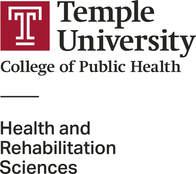Hear from the Peer InterventionistsCan you tell me how travel has impacted your life and ability to be mobile in community? Was it hard for you to learn to navigate the transportation systems? “Well, all my life I haven’t been able to drive. I’ve been planning to get a driver’s license, but I’ve always been scared to. Public transit has really been able to give me an alternative way to really get around the city; to get from place to place without really needing to plan a ride or spend exorbitant amounts of money on Uber or Lyft. It also fills me with like a sense of independence I don’t think I would have gotten if I were sharing rides with friends or family. It really gives me hope that I can be truly independent.”- Jeff “Navigating different modes of transportation, such as from the regional rail to the subway. And getting schedules and times mixed up, which can lead to some complications. Trying to keep a cool and steady head in the midst of that has been the solution to those kinds of problems.”- Nate SEE VIDEOS BELOW What has it been like to be a peer interventionist?
“I felt like this job was a perfect fit for me when I first read the description in August 2019. From the time I was in high school to now, I’ve gotten a lot more interested in public transportation. This job has gotten me even more interested than I ever was before. I feel like I can learn about places I’ve never been to before and the different public transportation systems they have, especially with SEPTA but also with other mass transit systems that happen to be in that area. I can learn about how to get to those places, what routes to take, and what different methods I need to be taking. By just taking it once, I can know right away how I can do that. It’s second nature.” - Luke “I just feel like it’s been such a great experience. There’s just been a number of experiences that have led me to believe that. One time, a participant and I took a bus from Norristown to the Montgomery Mall, where a friend of his worked, and he told me that he would never forget this day. You can clearly tell that learning how to use public transportation, especially for those on the spectrum that do not have a driver’s license, it changes lives. This role is helping to change people’s lives, and that’s something I was really looking for, especially in my first year after graduating from college.”- Luke
Vertical Divider
|
Luke (current)
Luke Tomczuk joined the research team as a peer interventionist in September 2019. He participated in the first Community Autism Peer Specialist (CAPS) training in the Commonwealth of Pennsylvania in June 2019. Just one month earlier, he earned his BA in History at Temple University. Tomczuk was diagnosed with Autism Spectrum Disorder (ASD) at the age of 2.
Read More Luke's Presentation at the Philly Autism Project Conference this year!
Nate (past)

Nathan Deitcher was an important part of our research team. He served the research team as a peer interventionist from March 2019 until September 2020. He previously worked as an AmeriCorpsAbility member at the Ruttenburg Autism Center after graduating from Juniata College with a B.A in Philosophy.
Read More Keeping Everyone Safe.As we seek to broaden the transportation opportunities of adults on the autism spectrum, the safety of the peer interventionists and participants is our primary concern. There are many attributes that Peer Interventionists have that promote safety and learning. Our peer interventionist go through specialized training where they learn the following things.
Click here to learn more. Peer Interventionist TrainingOnce hired, peer-interventionists participate in an intensive training process.
Click here to learn more |


